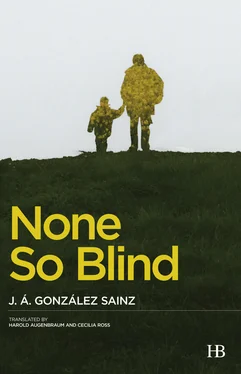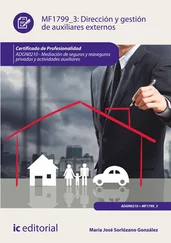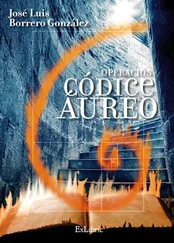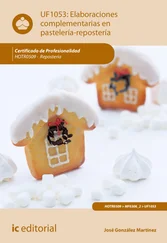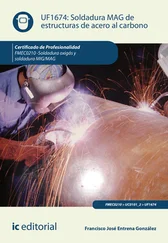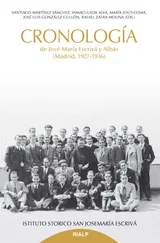“I’m not going to go in,” his son anticipated him.
His father gave a small nod of assent; the hollows of his eyes, it seemed to him when he saw him nod, were like two henbane flowers, their dark purple depths branching out in subtle, violet venations around the yellowish corollas.
18
When he got there, he went directly over and sat down in one of the chairs positioned in front of the glass partition that divided the room in half. The glass was thick, double-pane, and it went from your waist up to a yard or so from the ceiling, and beyond his own image reflected in it, there was nothing but a white wall, with no decoration or furnishings, at the center of which was a completely smooth, closed, metal door. Above the door, an enormous, round wall clock presided, like those old religious symbols, over the entire halved space. He couldn’t hear it, but it nevertheless seemed to be the only thing, apart from the hum of the fluorescent lights, which he could easily imagine as being a dialectic synthesis of its ticking, that there was to perceive in the emptiness of the room.
There weren’t any people, either, on the other side of the glass or behind him, only twin metal doors sealed so perfectly tight that not the least sound could get through nor the slightest movement be discerned behind them, and more than imprisoning space, you might say that what they were detaining was, strictly speaking, time. Felipe looked at the wall, the blank, white wall in front of him, but the only thing he could see was the reflection in the double-pane glass of his own image superimposed on the perfectly visible movements of the clock’s ticking hands. With an instinctive motion, he moved his head from side to side, and the image of his face, his full, broad face covered all over with wrinkles, coincided exactly with the face of the clock. Tick-tock, he then seemed to hear with acute precision.
As if what he was awaiting were the execution of his death sentence, droplets of memories floated up into his mind, crisscrossing it with no rhyme or reason, as they say happens to the dying just before they pass. Neither the sure victory of oblivion nor the will to banish them seemed in the least able to stand against the unstoppable, growing force with which they emerged, and the images continued to imprint themselves on the glass of his memory, just like his reflection on the thick, double-pane glass that divided the room in half, even though what he saw in one was fixed and blurry, a fractioning, even, of the image in the double layer of glass, and in the other there was nothing but swiftness and clarity.
He saw the beginnings of the storm that first day he went back home from the field after his return to the village, less than a year ago, and of the one that last day before his departure from it; he saw the years spent along the road with the metalworks and the tire retread shop after that, and the dining room in his apartment, where the furniture was so garish it seemed to be arguing with whoever was using it and where he spent ever more time in his corner next to the window. He saw Asunción, he saw her increasingly incomprehensible expression, increasingly dry and disconnected from the things that had been theirs, and her face, too, so long ago, on the day they’d coated themselves with mud beneath the poplar trees by the river, the day they liked to think, because of how happy they’d been, and even though the dates didn’t work out right, that the two of them had conceived the son he was now waiting to appear on the other side of the glass. And suddenly he saw — he was still a little boy, a whelp no more than three feet high — the eyes of his father, may he rest in peace, the serene and resignedly melancholic eyes of his father — Felipe Díaz, like him, Felipe Díaz Díaz — on the desolate night when they burst violently into the house, when they virtually broke down the door, his mother would say when she told the story, those little men in blue shirts from who knows where, and it doesn’t really matter, anyway. Four or five boys, they were no more than boys — his mother narrated, because even though you can forgive and forget, my son, you should never forget, she would say — four or five boys under the orders of one of those brazen thugs who have always existed and will always exist in this loathsome world, make no mistake, but whom certain circumstances allow to do whatever they please and even to dictate the lives and deaths of others, although other circumstances, at least, do not. Those years, Felipe, my son, his mother would continue, always using almost the exact same words each time she told the story, they were the first kind of circumstances, years when even the biggest nitwit could fill his mouth with grand words that masked nothing more than wickedness and villainy, wickedness and villainy all around, she would always repeat. It seemed as if all the stupidity and arrogance combined and all the vanity in the world had gone to the heads of most everyone, and that all those of ill will, who, of course, called themselves by a different name, using appealing, almost pretty language — and those of good will right behind them, imagine that, or out in front of them, make no mistake, like little, euphoric sheep — had gotten together and made a pact to call the shots everywhere. Like Abelardo, remember him? Abelardo García Quiñones, the man with the field next to ours, in that spot where his sons would later plant nothing but poplars and then more poplars, and so it pleased God — his mother would always add at this point, as if hoping it would serve as a warning or a reminder, more than a mere, useless indulgence — to call him to account, right then and there.
He saw his father’s eyes — he heard his mother’s voice — and he saw, too, the shiny boots, the buckles, the intruders’ glistening leather jackets on that dazzling night, and more than anything he saw their guns and he saw their expressions, which now, so many years later, were still as overlapping as his reflection in that glass that divided the room in half. The boastfulness of the revolvers, he thought, the boastfulness of the revolvers and the fatuous braggadocio of their haughty, disdainful expressions, and now there rose up again to imprint themselves on his memory those furious, contemptuous, cocksure smiles that he’d spent his whole life trying to run away from, that he would have given anything to be able to bury once and for all in oblivion, but whose lurking image, apparently no matter how much time passed or how hard he tried to avoid it, he seemed to be condemned, like someone condemned to some sort of life sentence, to witness. Because he knew that just as others are pursued their whole lives by bad luck or disease or the inability to match their strength to what needs to be done, his sentence, his real leap in the dark, which he had already taken, was the oppressiveness of that impertinent, smug glow, the black glow of malice and imbecility in the smiles of those who arrogate to themselves absolute power over the lives of others and act with treacherous superiority upon the deserted defenselessness of others.
And now he saw that glow again, now he saw it again at the same time as he saw, alternating with it, the eyes of his father, so tall, gaunt, erect and yet at the same time such a small thing on the threshold of the doorway between the kitchen and the patio. The breeze — he remembered as if it were yesterday — made the leaves tremble on the cherry tree, whose fruit they had recently picked, and his father, may he rest in peace, told them that they could look wherever they wanted, but they weren’t going to find anyone there.
“Look, Felipe, you’re playing with fire here, I know you have that anarchist vermin around here somewhere, and you really are playing with fire. So I hope you know what you’re doing.”
Читать дальше
